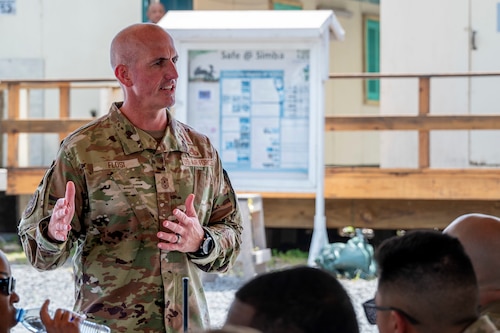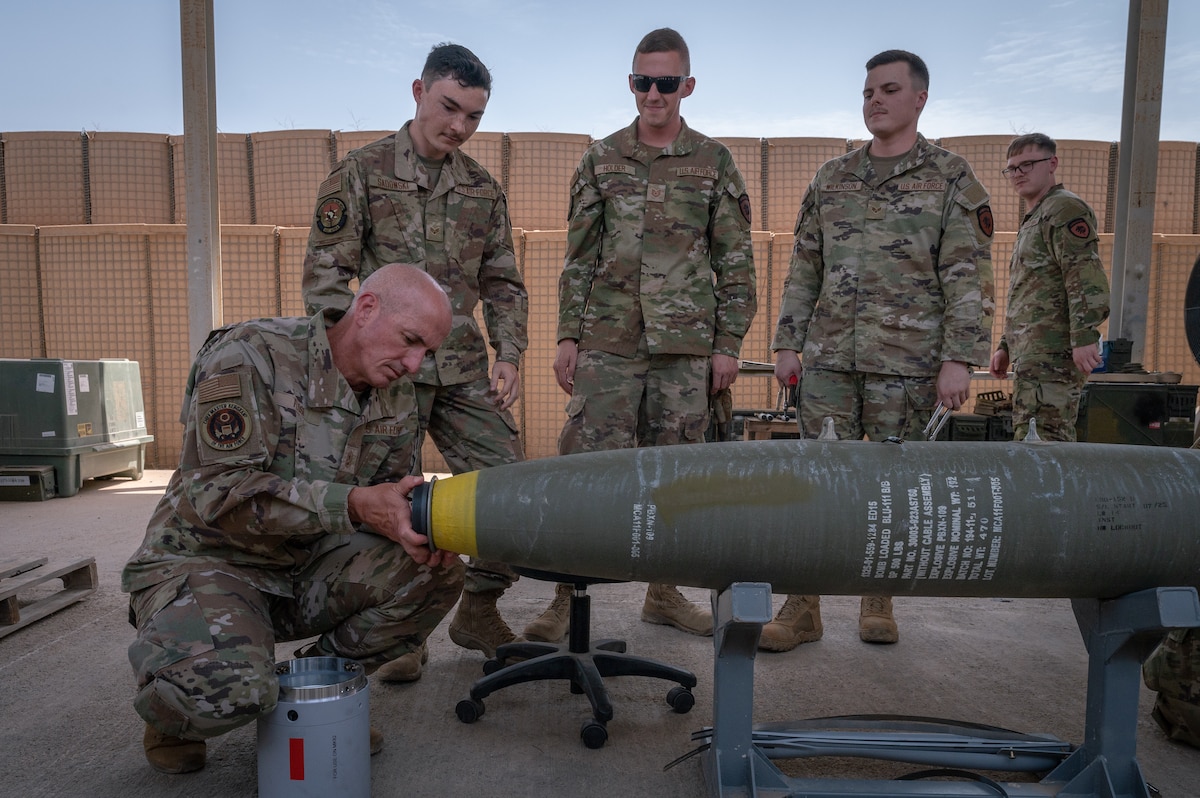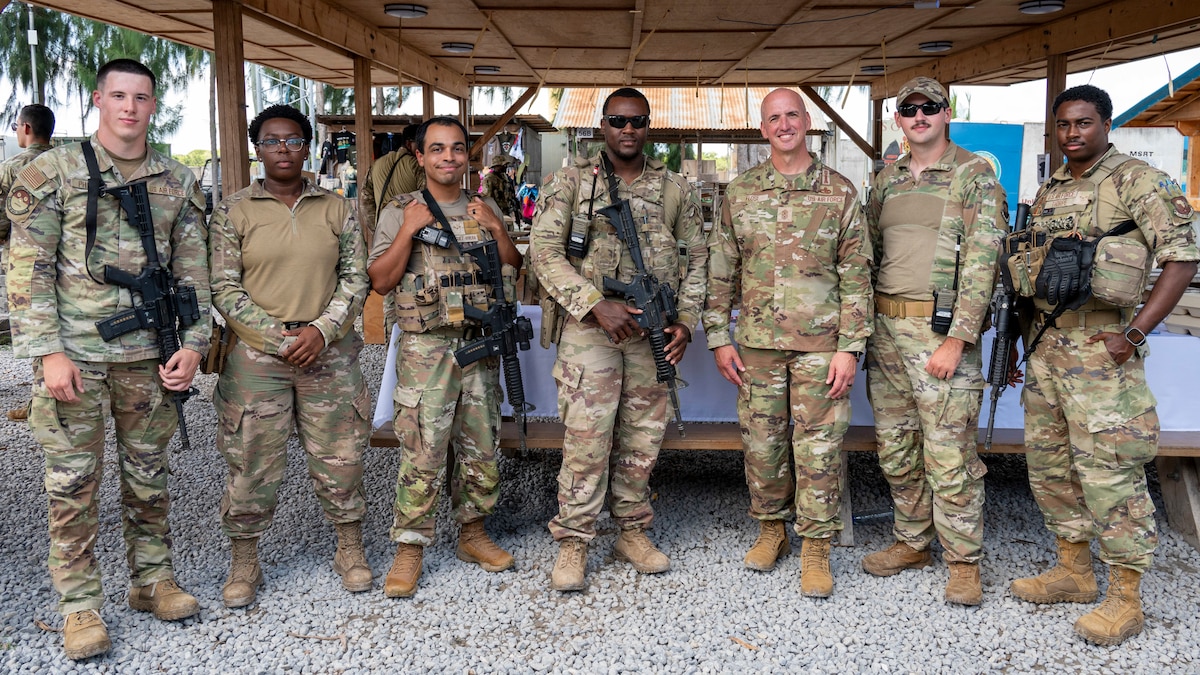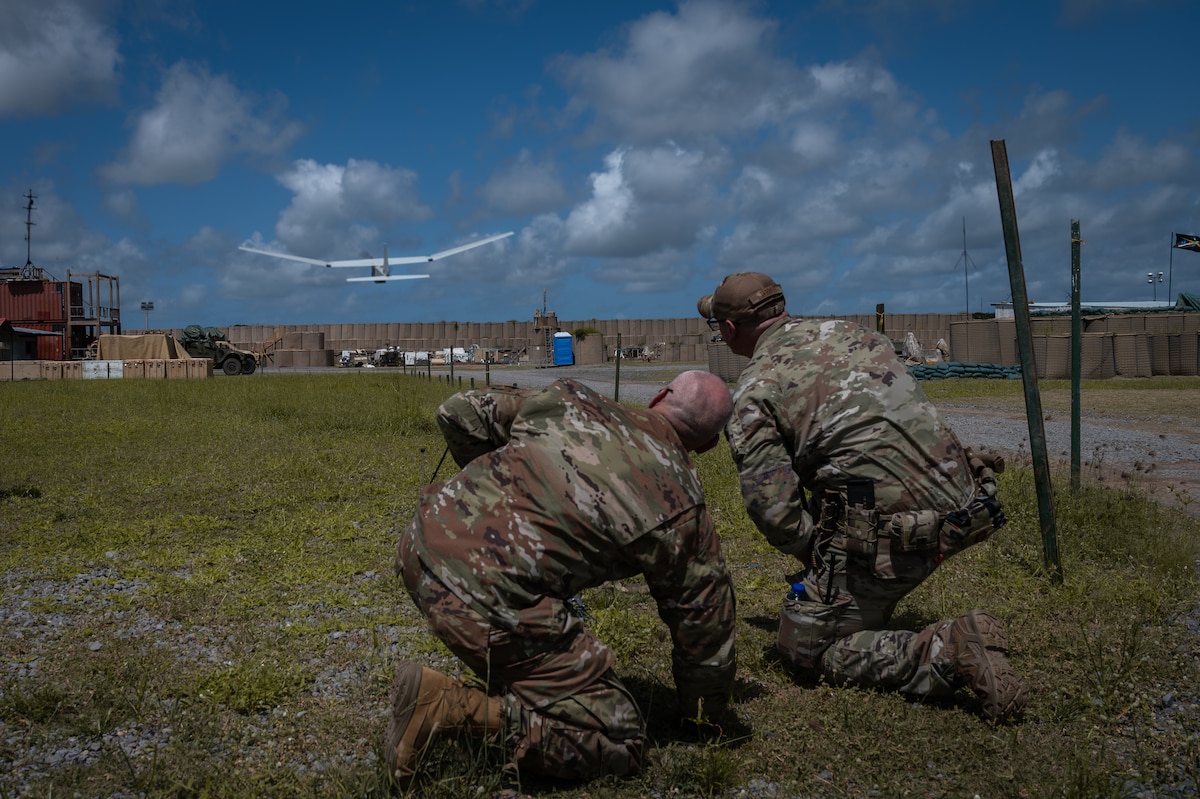Chief Master Sergeant of the Air Force David Flosi met with Airmen across East Africa during a recent multi-base visit, where he observed how small, agile teams are delivering results in one of the most strategically significant and operationally complex regions in the world.
From low-resource expeditionary hubs to forward operating locations facing real threats, Airmen are staying mission-focused, supporting one another and delivering results in demanding conditions.
The visit began at Camp Lemonnier, where Flosi received mission briefings from 449th Air Expeditionary Group leadership and visited squadron work centers. Operating in a constrained environment, Airmen there continue to deliver essential capabilities with flexibility and focus. They are leveraging available technologies to counter a growing small unmanned aerial system threat in the region, an evolving operational concern requiring agile solutions at the tactical edge.
"The AFRICOM AOR is a challenging environment," Flosi said. "You continue to operate in a low-resource setting, executing the mission with focus and flexibility to counter threats in the region."
The senior leader then traveled to Camp Simba, Manda Bay, Kenya, where the deployed team is embodying the "Mission Ready" mindset. Airmen are stepping outside their core Air Force Specialty Codes to fill mission gaps, support each other and sustain forward operations, often in joint and host-nation integrated environments.
Chief Master Sgt. Ben Weavers, senior enlisted leader of the 475th Expeditionary Air Base Squadron, said the visit highlighted the growing strategic relevance of Manda Bay.
"It was great to highlight the strong partnership we share at Manda Bay with our host nation Kenyans, sister services and tenant units," Weavers said. "They were impressed with what our Airmen are doing in support of our nation."
Weavers said the visit helped reframe the narrative of Manda Bay from a site that was formerly attacked by enemy combatants to a vital node of partner engagement and operational readiness.
"We've moved beyond the legacy of the 2020 attack to a stronger security posture that allows us to focus on partnership building," he explained. "We've conducted weekly knowledge exchanges with our Kenyan partners across disciplines like medical, maintenance, air transportation, civil engineering, and more."
Lt. Col. Michael S. Ryan, commander of the 475th EABS, described the visit as a success, noting the valuable engagement between deployed personnel and senior leadership.
"CMSAF was able to interact with our deployed Airmen. The question-and-answer session allowed for two-way communication between Department of the Air Force leadership and our Airmen accomplishing the mission," Ryan said. "We provided CMSAF the importance of Manda Bay and the mission here," he added.
"We showcased our Airmen and the uniqueness of this deployment. Everything we do here is by, through and with the Kenyans."
He also noted the positive response from his team.
"Multiple Airmen thanked local leadership for the opportunity to interact with CMSAF," Ryan said. "This allowed them the opportunity to speak what is on their minds to our highest level of leadership."
On the final day of the tour, Flosi visited Chabelley Airfield, where Airmen support critical intelligence, surveillance and reconnaissance operations. Here, he helped build a laser-guided bomb and observed how Airmen and Soldiers are detecting and deterring UAS threats with advanced counter-sUAS systems.
These missions play out just miles from the People's Liberation Army Support Base in Djibouti, a visible reminder of the region's strategic weight and the importance of maintaining a consistent, capable U.S. presence.
A consistent theme across locations was the deployment of small Unit Type Codes rather than fully aligned teams. Leaders noted that aligning future rotations with the Air Force's Unit of Action concept, sending cohesive, trained teams that arrive and operate together from day one, may help improve readiness and continuity in the region.
"The missions you support are vital to regional security," Flosi said. "You're holding the line, and your work underscores the strategic significance of this region and the importance of a consistent and capable U.S. presence."










